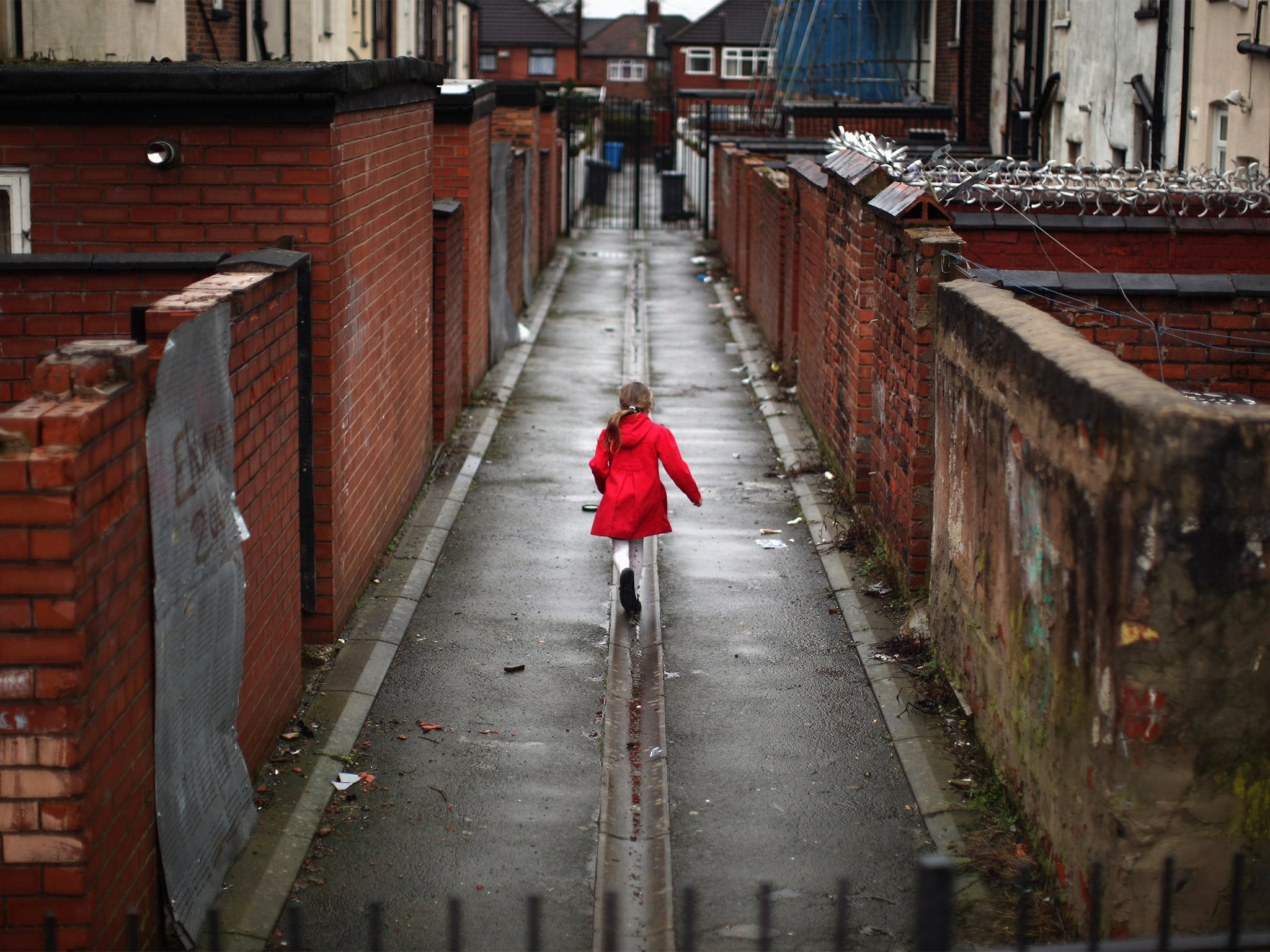Britain ‘lagging behind developed world’ on child poverty, Unicef report reveals
Unicef’s deputy executive director for the UK said the country ‘can and must do better‘ and should be ‘more ambitious’ for its children

Britain has been reprimanded by the UN over its record on reducing inequality among children, as a report revealed we lag behind some much poorer nations in achieving parity between rich and poor on health and educational outcomes, and warned over the likely impact of future welfare cuts.
The Unicef report, Fairness for Children, emphasised the importance of a strong welfare system in reducing inequality – and carried a strong suggestion that the Government should reconsider its cuts to benefits.
The UK ranked 25th out of 37 wealthy countries covered by the report – behind Poland, Romania and Slovenia – for its equality levels in children’s reading, maths and science skills at age 15.
Britain also saw the biggest difference between rich and poor children for consumption of healthy food such as fruit and vegetables, and it also had one of the largest gaps in levels of physical activity between children from high and low income backgrounds.
Lily Caprani, Unicef’s deputy executive director for the UK, said the country “can and must do better” and should be “more ambitious” for its children.
“Inequality between children is damaging their lives and aspirations,” she said. “Taking children’s rights seriously means acting with urgency to make sure no child is left behind.”
Measures of inequality were based on survey results on health-related activities, and educational achievement data from EU and OECD countries.
Ms Caprani said the Government should deliver its long-delayed childhood obesity strategy “as a matter of urgency”. She added that the Government should take more action to reduce income inequality, including “protecting social transfers” – the term the report uses for redistributive government policies like welfare payments.
Despite pledging that no new reductions in welfare spending would be announced in this Parliament, the Government is still committed to £3bn in welfare cuts that will affect one million households by 2020. The report has the UK currently among the best performers for reducing income inequality, ranked 7th out of 41 countries. But cuts to working and non-working benefits since 2013 are projected by the Institute for Fiscal Studies to increase child poverty by 50 per cent by 2020.
Labour’s Shadow Welfare and Pensions Secretary, Owen Smith, said that cuts introduced as six different benefits are converted to a single Universal Credit payment, could see the UK fall down the international league table.
“For anyone who wants our country to be the best place in the world for children to grow up, this report will make depressing reading,” he said.
“Tory cuts introduced this week to Universal Credit will undermine that progress, leaving a working single mother £3,000 a year worse off, while over time resulting in over two million working families losing an average of £1,600 per year, driving up child poverty,” he added.
Alison Garnham, chief executive of the Child Poverty Action Group, said that for growing numbers of children, “childhoods are going to be shaped and limited by poverty-producing policies.”
“This report makes clear both the importance of poverty to child wellbeing and the vital role the UK social security system plays in preventing child poverty. But the social security system it's talking about was the one we had in 2013, not the one we'll have by the end of this parliament…We should be in the business of investing in, not rationing, happy and secure childhoods.”
Professor Neena Modi, president of the Royal College of Paediatrics and Child Health said that the report presented “a worrying picture of child health and wellbeing in the UK”.
“Poverty and inequality impact on the way in which children develop, their future health, happiness and economic prosperity,” she said.
“It is particularly concerning that the UK has the largest difference in levels of healthy eating between children from low and high socio-economic status. Combined with one of the largest gaps in the levels of physical activity, more of our children are at risk of becoming overweight and obese which will have a significant impact on their future health and the health of the nation,” she added.
She said the childhood obesity strategy should include measures to improve school environments so that they promote exercise and healthy eating.
A Government spokesperson said: “We’re working to eliminate child poverty and improving life chances for children and there are now 300,000 fewer children in poverty. We know there’s more we can do and that’s why we’ve introduced the National Living Wage which is increasing the incomes of the lowest paid. All infant pupils can now get free school meals – meaning 1.3 million more children get a nutritious free meal at lunchtime, saving families hundreds of pounds. And we continue to spend £80bn a year to provide a safety net for those who need extra support.”
Join our commenting forum
Join thought-provoking conversations, follow other Independent readers and see their replies
Comments